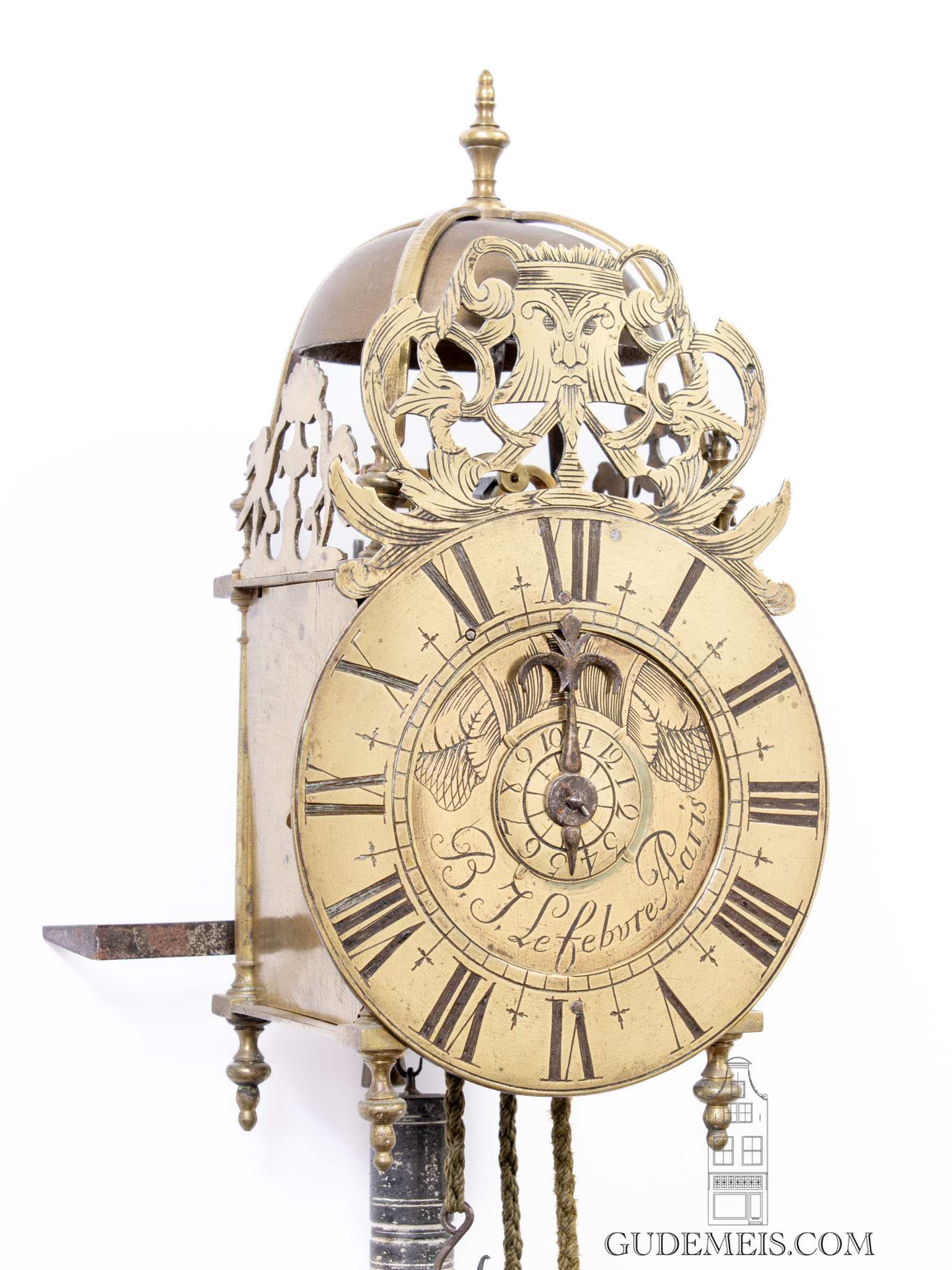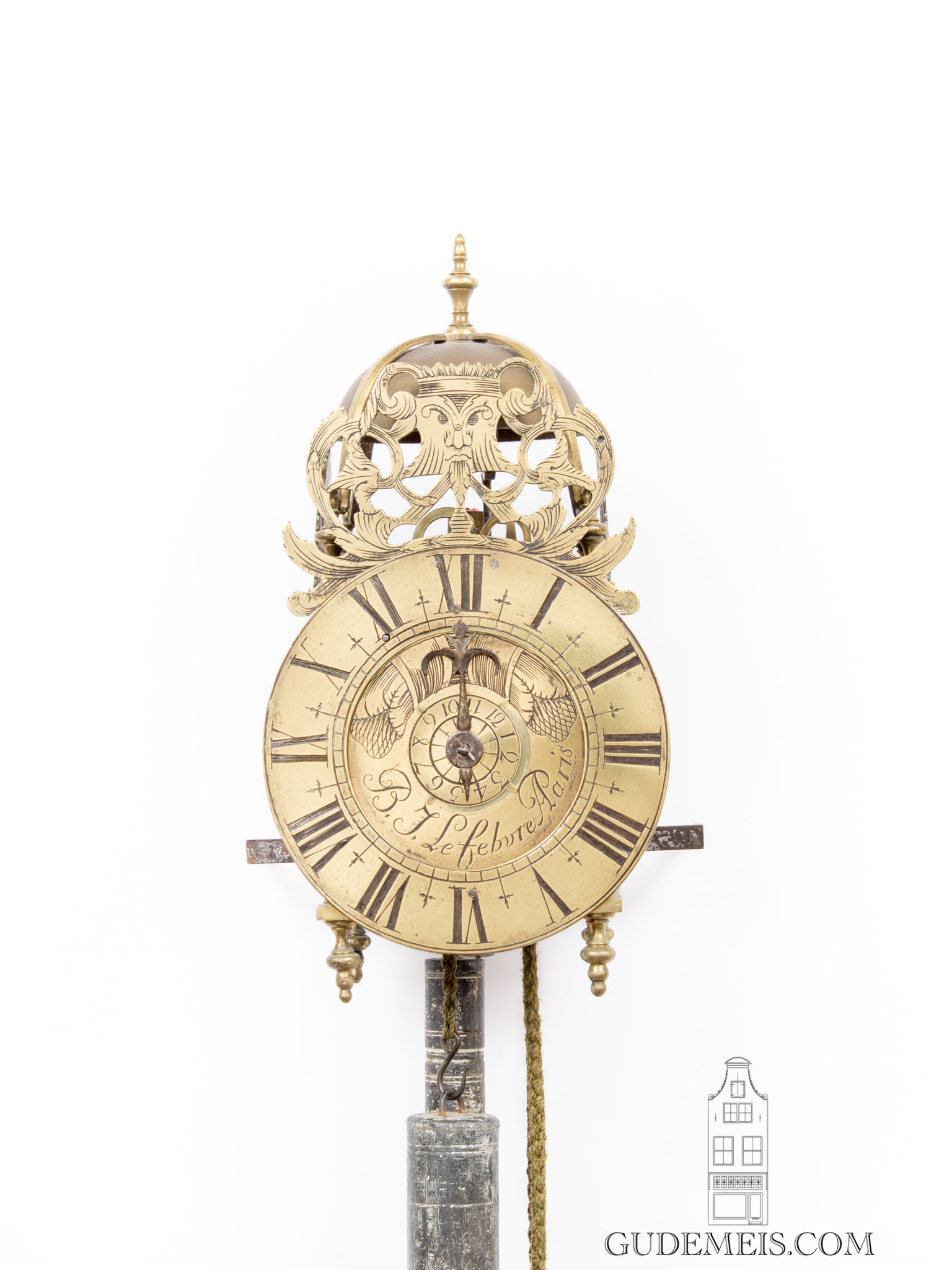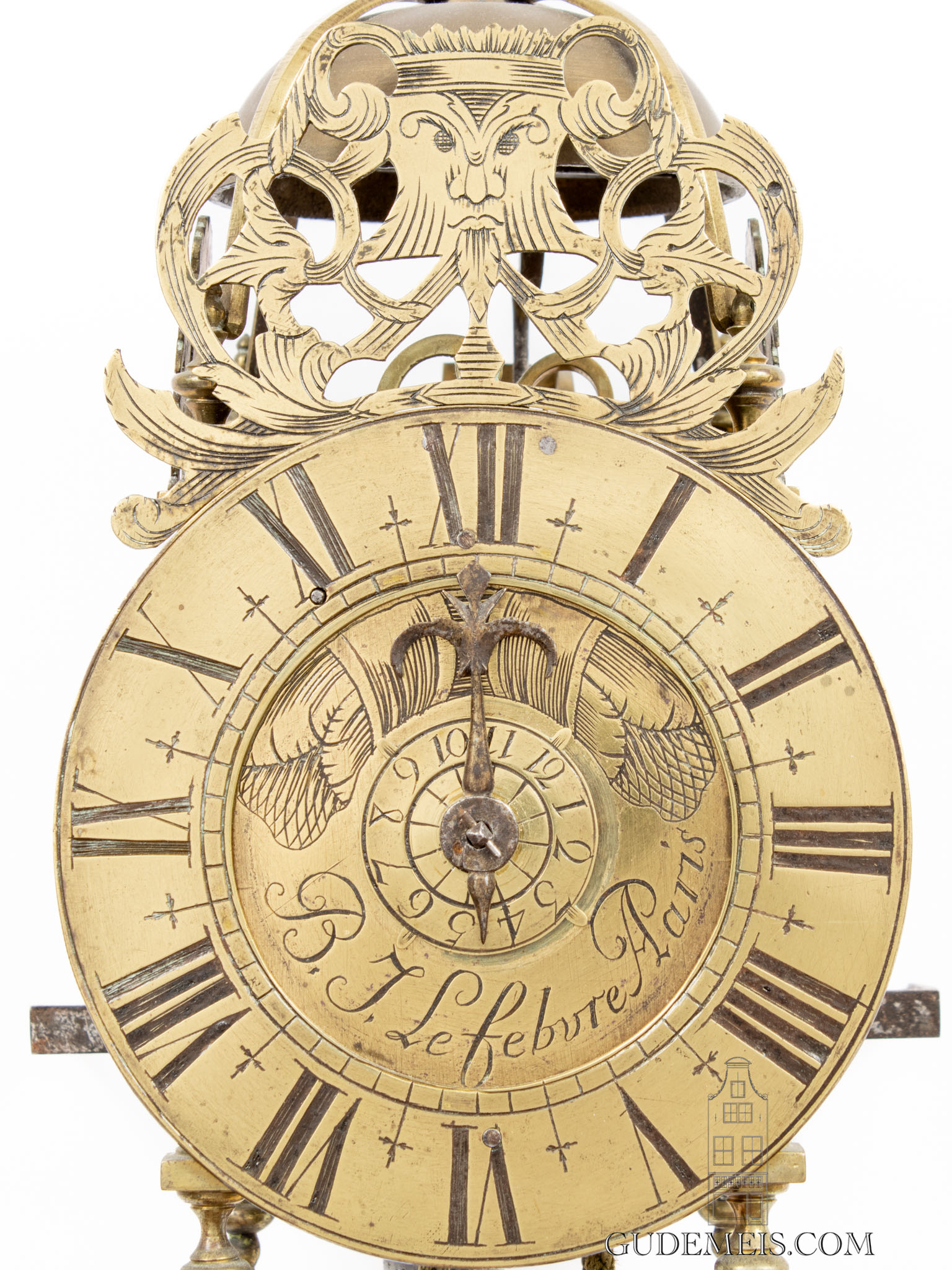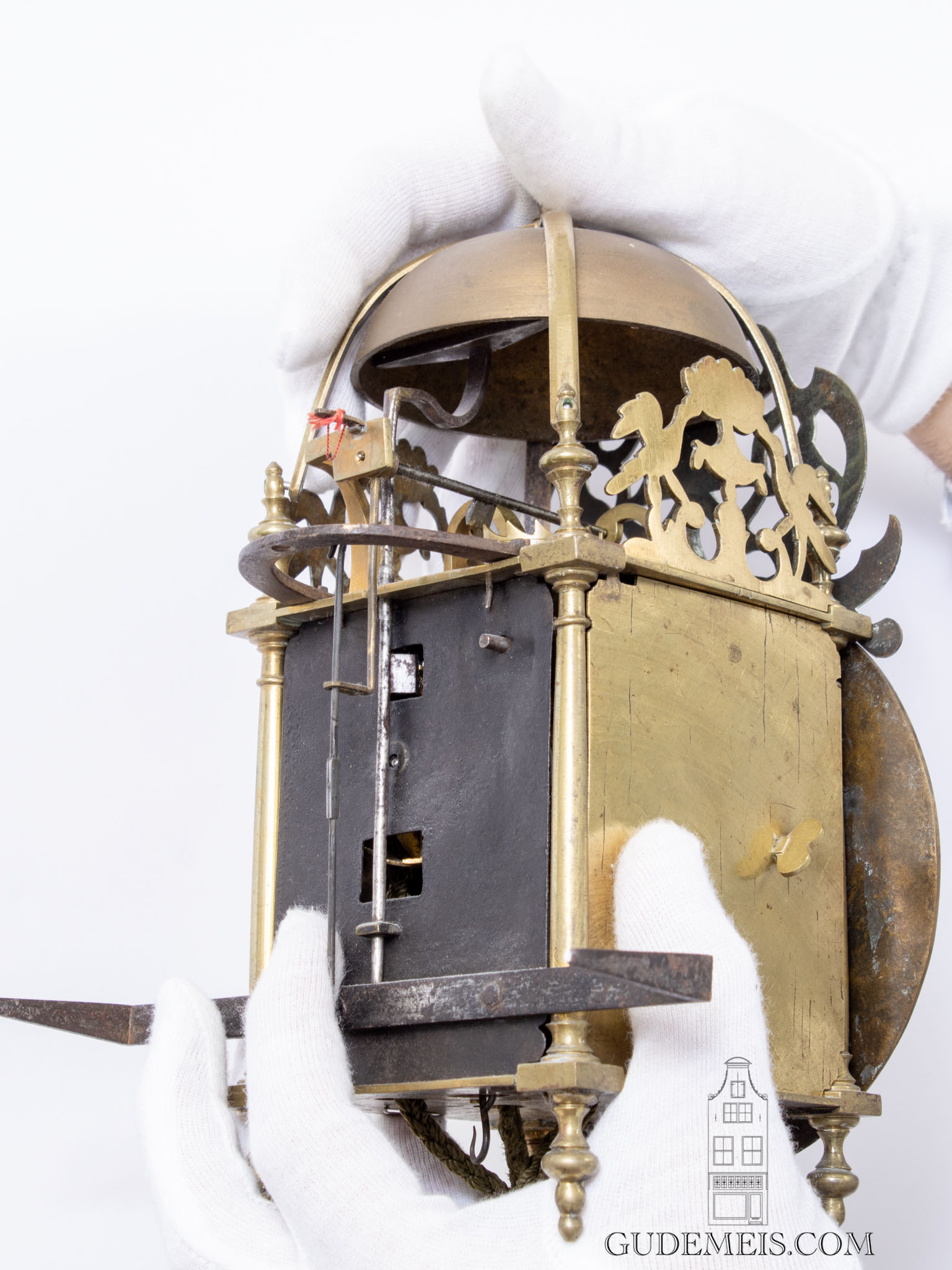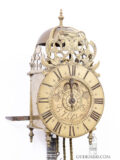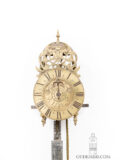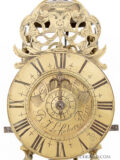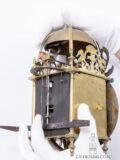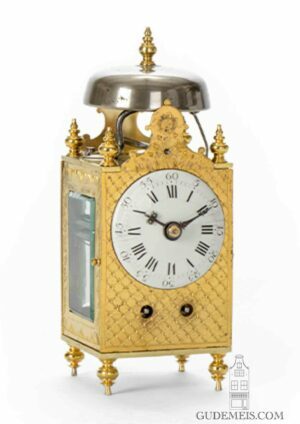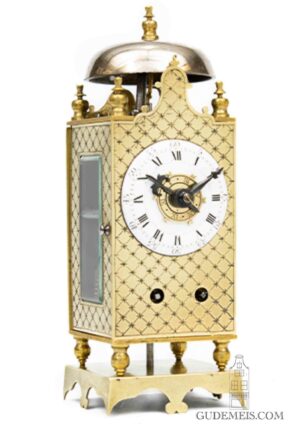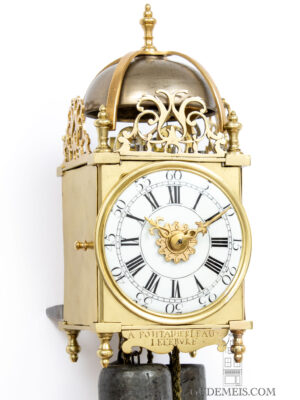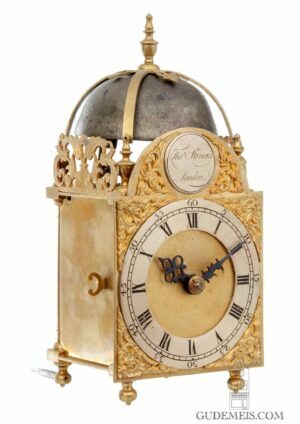A small French brass lantern clock with alarm, B J Lefebvre A Paris, circa 1730.
Description
Lantern clock
The term ‘lantern clock’ is a later invention that was probably introduced in the 19th century. In written wills and inventories from the time, these clocks are usually referred to as ‘brass clocks’ or ‘house clocks.’ The size and proportions of this clock make it endearing and easy to place in any interior. By definition, small clocks are rare, as clocks were expensive and the first clock in a home was usually larger because it had to be visible to everyone. Therefore, a small clock was likely to be a second or third clock, which not many could afford. Since this clock has an alarm only, it was probably used as a bedroom timepiece. Endearing and interesting, this small treasure will be a joy to all who look at it.
Lefebvre A Paris
The 12.5-cm engraved brass chapter ring has Roman numerals. The arrow shaped single hour hand is made of iron and the alarm disc is made of brass. The centre is adorned with wheatear engraving and signed B.J. Lefebvre A Paris.
Verge escapement
The posted weight driven movement has a duration of thirty hours. It is being regulated by verge escapement in combination with a silk suspended pendulum. The clock has an alarm mechanism that strikes on the surmounted bell.
Engraved frets
The brass case is surmounted by a bell cross on four urn finials which is surmounted by a fifth urn finial. The front is adorned with a foliate pierced engraved fret. There are doors to the sides with plain frets above. The whole terminates in four turned finials. The whole is suspended by means of a hoop and spurs.
